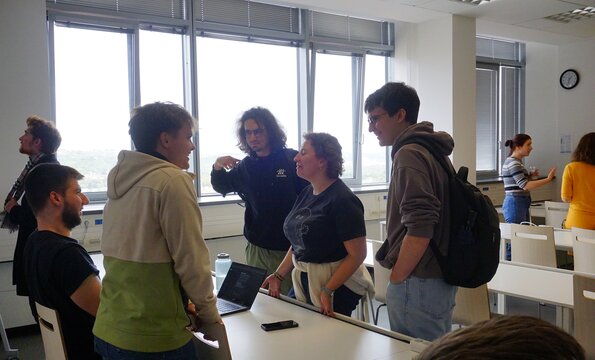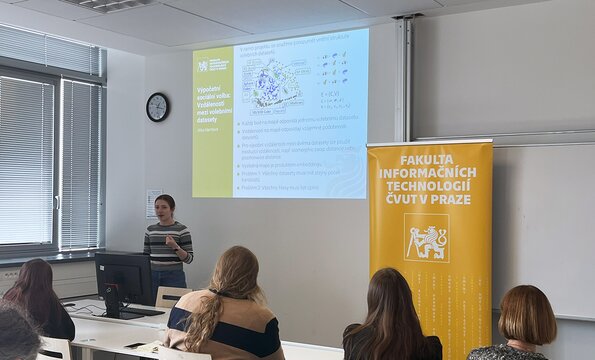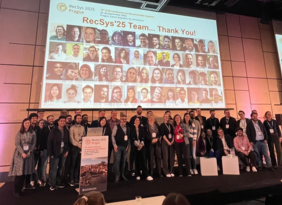
On October 6, 2025, the Faculty of Information Technology of the Czech Technical University in Prague (FIT CTU) opened a new research Laboratory of Algorithms (AlgoLab), established within the Department of Theoretical Computer Science. The laboratory focuses on the development of efficient algorithms – procedures that enable modern technologies to operate faster, more reliably, and to handle massive amounts of data.
“An algorithm is essentially a step-by-step recipe for solving a specific problem. An efficient algorithm does it not only correctly, but also quickly and with minimal computational resources. Without them, it would be impossible to use technology on the scale we do today – from internet search and navigation to artificial intelligence,” explains Mgr. Michal Opler, Ph.D., head of the new laboratory.
The efficiency of algorithms is key to meeting new challenges. Thanks to it, computers can process ever larger volumes of data and tackle complex tasks that seemed impossible just a few years ago. For example, navigation systems use efficient algorithms to find the shortest path on a map (such as Dijkstra’s or A* algorithms). Their optimizations make it possible to instantly recalculate a route in case of traffic jams or detours. If these algorithms were inefficient, the computation time with millions of roads and intersections would be too long, rendering such applications unusable in practice.
Experts from the Department of Theoretical Computer Science at FIT CTU focus on the complexity of graph problems, string and tree processing, social choice, computational geometry, computational genomics, and other fields. They also study mathematical games and game mechanisms and engage in discrete optimization.
The AlgoLab research team works on projects with an international reach. For instance, FIT CTU student Bc. Jitka Mertlová presented her research this year at the prestigious AAAI 2025 Conference (AAAI Conference on Artificial Intelligence)—one of the most renowned AI events, rated A+. Her work succeeded among nearly 17,000 scientific papers, with only about 3,000 ultimately accepted. The presented paper explored how to compare and measure differences between various voting scenarios (for example, when the number of voters or candidates differs). In her research, she created so-called voting maps, which help researchers properly construct datasets for testing hypotheses in voting theory. Practically, this contributes to a better understanding of how real and simulated electoral data behave.
The new laboratory will serve not only as a facility for teaching and research but also as a collaborative space for students, doctoral candidates, and academics.
The opening ceremony was attended by the new Dean of FIT CTU, Assoc. Prof. Jan Janoušek, Ph.D., who emphasized the importance of the new facility in supporting the faculty’s research excellence:
“The opening of AlgoLab is another step toward strengthening the research excellence of our faculty. We aim to create an environment where students and academics can jointly engage in research activities in computer science and thus contribute to expanding knowledge across our society.”





